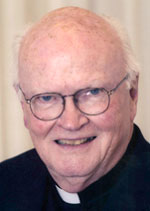Meet the “just-in-time” professor. That’s a descriptive phrase coined by a committee of the U.S. House of Representatives to describe a comparatively recent development in the world of American higher education.
The just-in-time (or adjunct) professor is compensated on a piecework basis, averaging about $3,000 per course, according to a recent survey. He or she is subject to last-minute course cancellation when an announced course fails to fill a minimum number of classroom seats — typically 10.
This is a growing phenomenon that affects the professional lives of more than a million college faculty members — a contingent workforce that is now talking about organizing into labor unions on large and small college campuses across the country.
Not all higher education administrators are happy about it. Georgetown University, citing the support for organized labor that is central to the tradition of Catholic social teaching, welcomed in 2013 a union for adjuncts to campus. Duquesne University, another Catholic institution, is stoutly resisting.
Many administrators, for a variety of reasons, are wringing their hands over the prospects of unionization in these uncertain days of rising costs, flat enrollments and across-the-board budget cuts.
[hotblock]
Administrators who don’t want to have to deal with a union should remind themselves that the most effective union organizer is almost always an insensitive administrator. They should be careful not to offend in both the substance and style of any countermeasures they decide to take, but they should acknowledge that adjuncts do, indeed, have the right to organize.
The adjunct wants a higher per-course payment, would like to have benefits not now paid to part-timers, and would surely like some semblance of job security that is simply not there today for the just-in-time professor, hence the appeal of unionization.
If either side on this divisive issue asked my advice, I would recommend transparency and open communication on the part of both the adjuncts and any uneasy administrators. Creative thinking is needed.
What if, for example, a supplemental payment fund were set up by the administration so that any adjunct who pleads financial hardship — and is also willing to make full disclosure of all other income from sources other than the college where the part-time teaching is done — could qualify for a supplemental stipend?
Some adjuncts, by no means all, have well-paying, full-time jobs. Some also have a working spouse and enjoy a respectable family income. Those who don’t should not object to a requirement to post proof (e.g., an income tax return) to show they really need help. Nor should any administrator object to earmarking a special fund to meet this need.
Similarly, creative thought has to be applied to the challenge of easing the disproportionate impact of last-minute course cancellation on adjuncts.
It is in the interest of everyone — students, faculty (full- and part-time), administrators and staff — to maintain the delivery of high quality education in every course, regardless of whether the professor is on the tenure track or part-time.
Indeed, the part-time professor can enhance the quality of the classroom experience precisely because he or she has nonclassroom, real-world workplace experience to bring to the course.
As more adjuncts populate the landscape of higher education, creative care must be taken to avoid permitting them to become victims of a scorched-earth policy.
—
Jesuit Father Byron is university professor of business and society at St. Joseph’s University in Philadelphia and former president of The Catholic University of America. Email: wbyron@sju.edu.
PREVIOUS: Subsidiarity, solidarity and making tough decisions in Pa.
NEXT: Loss of job, arrival of troubles, puts strain on a marriage




Share this story